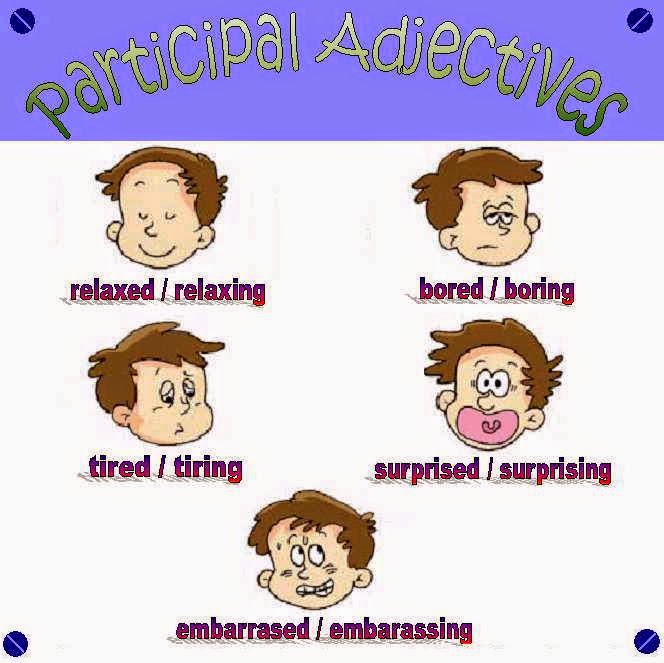1. Past
Participle (words that end in -ed):interested, bored,
excited. These words show how people feel.
Example: She's
very interested with the lessons.
2.
Present Participle (words that end in -ing): such as interesting, boring,
exciting. These words describe the things that causes someone feelings.
Example: The
lessons are always interesting.
Observa
las diferencias con estos ejemplos:
- i'm getting bored, this film is really boring
- i'm getting bored, this film is really boring
- English
can be confusing. They are confused (= The students are confused by English)
- I find
photography interesting.Iam interested
in photography. (= Photography interests me)
- We had a
relaxing holiday. We felt relaxed aft er
our holiday (= The holiday made us feel relaxed)
The
example that you asked about referred to a person, using both the -ed and –ing
forms. Examples using this structure
include:
My
little brother is annoying. (He makes me
feel annoyed)
My
little brother is annoyed. (Something is making him feel annoyed)
She felt
tired after working all weekend. (Working all weekend made her feel tired)
She is
tiring to work with. (She makes other people feel tired)
Página para revisar teoría y hacer un ejercicio:

No comments:
Post a Comment